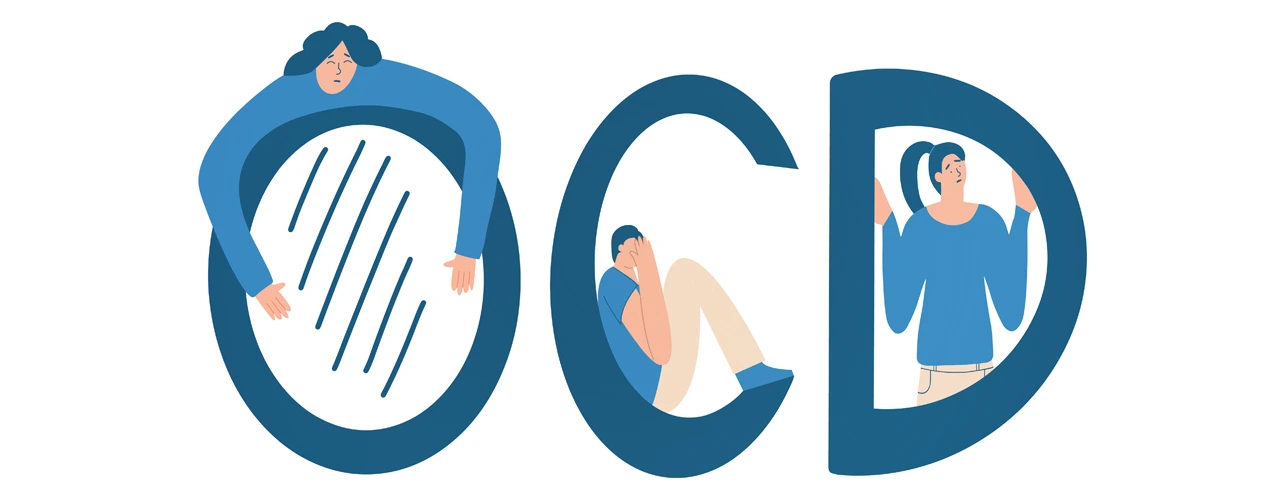Living with ADHD can be exhausting. Constantly trying to keep up with responsibilities, manage distractions, and meet expectations often leads to a condition known as ADHD burnout. Unlike general burnout, ADHD and burnout are deeply intertwined—frequent overwhelm, emotional dysregulation, and mental fatigue are common. Let’s explore the signs, causes, and coping strategies.
What Is ADHD Burnout?
ADHD burnout is a state of physical, mental, and emotional exhaustion that results from the continuous effort of managing ADHD symptoms. It’s not just about being tired; it’s about being depleted.
People with ADHD often feel they must work twice as hard just to maintain basic productivity or keep up with others. This constant strain can accumulate and lead to a burnout cycle where recovery feels impossible without a major reset.
Common ADHD Burnout Symptoms:
ADHD burnout symptoms can significantly disrupt daily functioning, often building up gradually before becoming overwhelming.
- Extreme fatigue despite adequate sleep: This constant exhaustion is a hallmark sign that your mind and body are overextended.
- Brain fog or inability to focus: Mental clarity disappears, making even simple tasks feel impossible—ADHD burnout symptoms often intensify this cognitive fatigue.
- Loss of motivation for tasks (even enjoyable ones): Activities that once sparked joy may now feel like burdens, leaving you disengaged.
- Emotional outbursts or irritability: Small frustrations may lead to disproportionate emotional reactions, signaling emotional overload.
- Heightened anxiety or depression: These mood shifts can worsen as burnout deepens, impacting overall mental health.
- Difficulty making decisions or prioritizing: ADHD burnout symptoms may cloud your judgment, making choices feel overwhelming or paralyzing.
- Avoidance of responsibilities or social withdrawal: Overstimulation and mental exhaustion often lead to withdrawing from people and tasks to preserve energy.
How to Identify ADHD Triggers
Recognizing what triggers ADHD burnout is essential to breaking the cycle. Common triggers include:
- Unrealistic self-expectations or perfectionism
- A packed or chaotic schedule with little downtime
- Poor sleep hygiene and irregular routines
- Overstimulation (e.g., noisy environments, multitasking)
- Masking or trying to “act neurotypical” to fit in
Journaling or tracking your mood and energy levels can help you identify patterns and pinpoint specific burnout triggers.
How ADHD Burnout Affects Daily Life
ADHD and burnout can severely impact daily functioning:
- At work, burnout may appear as missed deadlines, decreased performance, or presenteeism.
- At home, it may look like neglecting chores, frequent emotional breakdowns, or strained relationships.
- Personally, it can damage self-esteem and lead to isolation or feelings of failure.
Because burnout can mimic depression or anxiety, it’s important to differentiate it from these conditions with professional support.
Strategies for Managing ADHD Burnout
While ADHD burnout can feel overwhelming, there are ways to manage and prevent it:
1. Set realistic expectations: Accept that you won’t always be productive, and that’s okay. Letting go of perfectionism can ease the internal pressure that contributes to ADHD and burnout.
2. Take breaks intentionally: Build rest and recovery time into your daily routine. Even five-minute pauses can refresh your focus and prevent long-term exhaustion. Even five-minute pauses can refresh your focus and prevent long-term exhaustion.
3. Use ADHD-friendly tools: Timers, reminders, and visual planners can help reduce executive function strain. These tools help you stay on track without overloading your brain, an effective way to combat ADHD burnout symptoms.
4. Prioritize sleep and nutrition: A well-regulated body supports a regulated mind. Skipping meals or losing sleep can worsen the cycle of ADHD and burnout, so consistency is key.
5. Ask for help: Whether from a therapist, coach, or support group, you don’t have to do it alone. Reaching out can create structure, validation, and emotional relief.
6. Practice self-compassion: Remind yourself that your challenges are real and valid. Treating yourself with kindness reduces shame and helps rebuild emotional resilience.
If you find yourself consistently overwhelmed and unable to cope, it might be time to seek professional help. Understanding your brain and its needs is the first step to healing from ADHD burnout.
Frequently asked questions
What Does ADHD Burnout Feel Like?
ADHD burnout feels like complete mental, emotional, and physical exhaustion. You may feel overwhelmed, unmotivated, irritable, and unable to focus—even on tasks you usually enjoy or manage well.
How Long Does ADHD Burnout Last?
ADHD burnout duration varies—it can last days, weeks, or even months. Recovery depends on factors like rest, support, coping strategies, and how early you recognize and address the symptoms.
How to avoid ADHD Burnout?
To avoid ADHD burnout, build regular breaks into your routine, set realistic expectations, use ADHD-friendly tools, prioritize sleep and nutrition, and seek support when overwhelmed. Self-awareness and boundaries are key.
What is ADHD burnout and how is it different from general burnout?
ADHD burnout is a form of physical, emotional, and mental exhaustion caused by the continuous effort of managing ADHD symptoms. Unlike general burnout, it often includes deeper struggles with executive dysfunction, emotional dysregulation, and chronic overwhelm specific to neurodivergent experiences. The constant need to self-regulate, mask symptoms, and meet everyday expectations contributes uniquely to ADHD and burnout.
How can therapy help with ADHD burnout?
Therapy can provide structure, coping strategies, and emotional validation. At So You Need Therapy, registered psychotherapists and nurse practitioners specialize in helping individuals with ADHD manage burnout, develop healthy routines, and address core challenges like perfectionism and low self-esteem.
When should you seek professional help for ADHD burnout?
If you're consistently overwhelmed, emotionally exhausted, or unable to function in daily life, it’s time to reach out. So You Need Therapy offers expert support from licensed professionals who understand how ADHD impacts mental health and can guide you toward recovery.











































